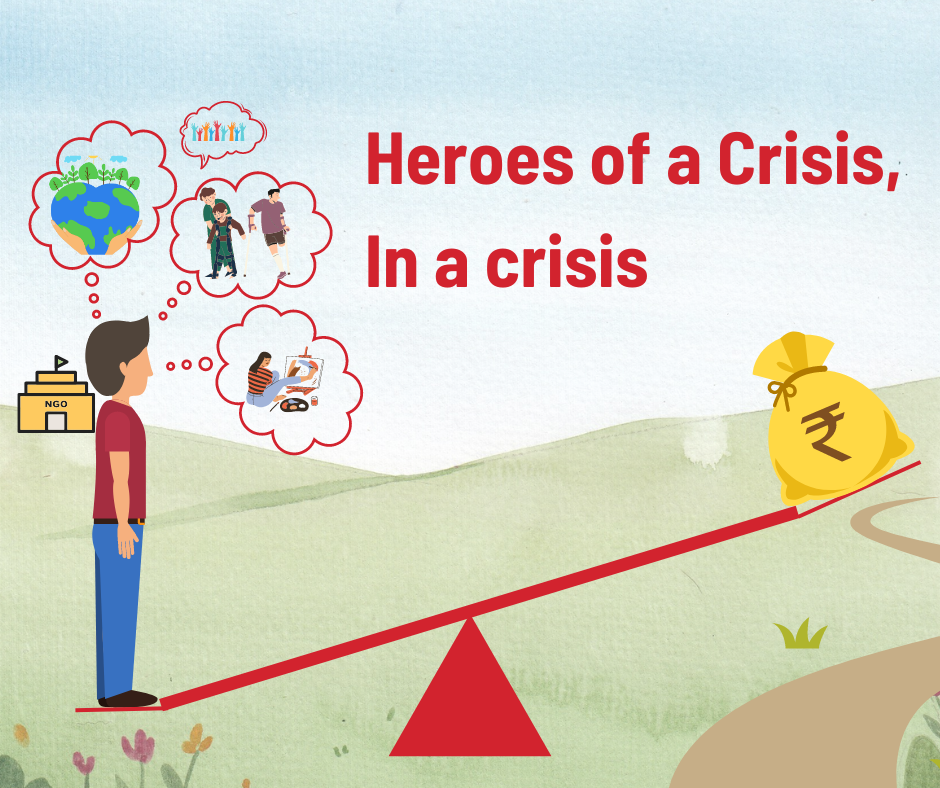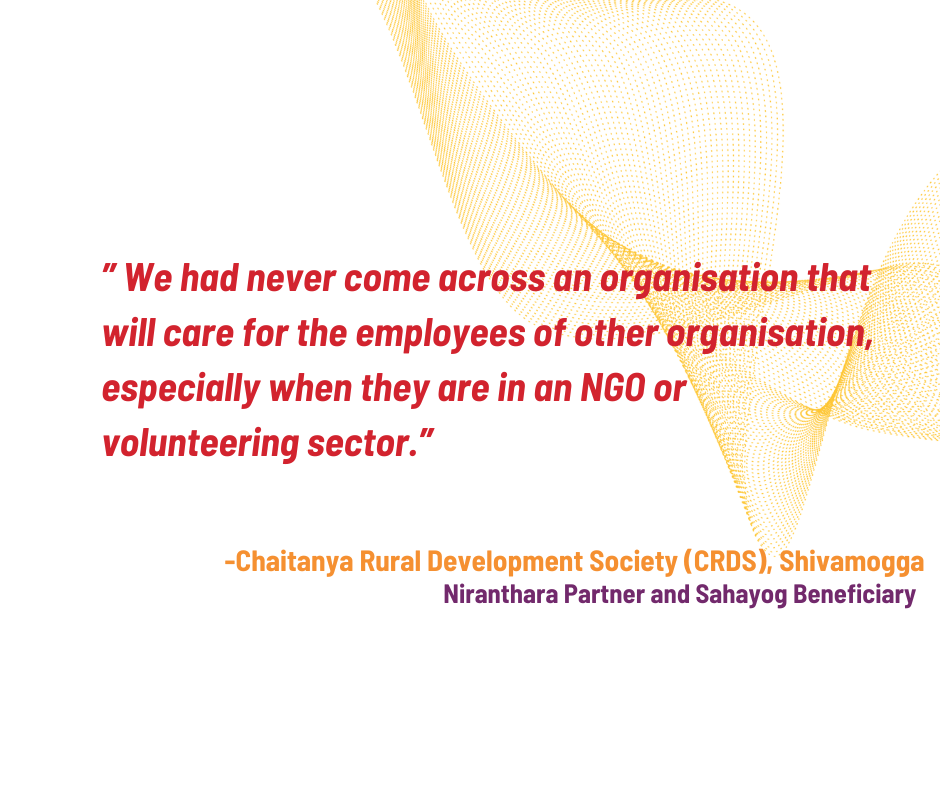
Heroes of a crisis, in a crisis
“How is education a fundamental right when I can’t even pay for it?” says Mrs Kokila when she applied for an educational loan at the non-profit organisation where she worked for 14 years. Her daughter qualified NEET but the family didn’t have enough financial capability to immediately support her admission.
Similarly, Philomina, another social worker from Tamil Nadu breaks down when she thanks her organisation’s staff welfare fund committee that immediately transferred 10,000 INR to Philomina’s account when her diabetic daughter suddenly fell sick and was hospitalised. She expresses her gratitude for the immediate acceptance of her loan request.
Indian social workers count to 1.5 million. Often known as the backbone of community development and the champions of the last mile, these frontline workers delve deep into communities, fostering connections and working passionately to bring about positive change. And still we come across a Kokila and a Philomina every once in a while.
We could have raised a ‘why?’ to this thought, and we did. But since we have closely worked with the grassroots development sector, we found it of utmost importance to address the ‘how?’ to this thought- a “How to support?”
“The award recognized my work for solving the failing crop pattern in 26 villages, but no one knows that I struggle every day to reach the village camps by walking 5kms. I have funds to multiply my work, but I do not have the personal finances to buy a bike.” These words come from the leader of a small NGO in Karnataka.
Does this ring a bell? Maybe we are thinking the same. If an NGO leader struggles with finances, what about the NGO workforce? Are they paid enough?
Infamous as the “Employees of the unorganised sector,” social workers navigate through unprecedented challenges every day. Neither is the community they strive to uplift easy to deal with, nor are the mandatory organisational challenges easy on them, yet social workers keep doing what they need to. If it is not passion, what is it?
But, within all the structures of the social sector, financial instability often becomes the biggest challenge to navigate. The reasons are many including less than standard salary, undocumented salary credit, and less to NIL increments. These reasons directly affect the personal lives of the social workers. Sometimes it leads to sacrifices in life in terms of education, health, etc. Sometimes it leads to loan rejections from credible financial institutions and adds a burden of over-the-head interest rates of local moneylenders.
If you were a social worker facing such a crisis, what would you do? Maybe look for a better sector to work in? Or migrate for a better opportunity with some minimum perks to have a better lifestyle? Or maybe let your passion keep you alive even when everything else falls apart?
Even a social worker chooses one among these options. As an attempt to fill this gap, we conceptualized the Sahayog initiative- a revolving fund withing non-profit orgnisations. Characterised as zero-interest loans, the fund aims to provide immediate help to the social workers of an organsiation who fall in the face of unexpected financial troubles. We attempted to make things a little easier for the champions of the last mile delivery.

Read more about Sahayog and learn how you can help.
For the unparallel role social workers play, they deserve more than to be called “Employees of the unorganised sector.” Often coming from the community itself, the social workers are themselves an example of change. Moreover, they go beyond limits to bring a change.
It is important to recognise them and appreciate them, but it is also important to help them lead a dignified life. Financial struggles can affect the quality of a social worker’s life by large and most of the time, overcoming such struggles takes generations. In the process, we often have to sacrifice on true unwavering passion for change. Is such a loss within a developing nation affordable?
If not, then what are we doing for their sustenance? What can we do more?

